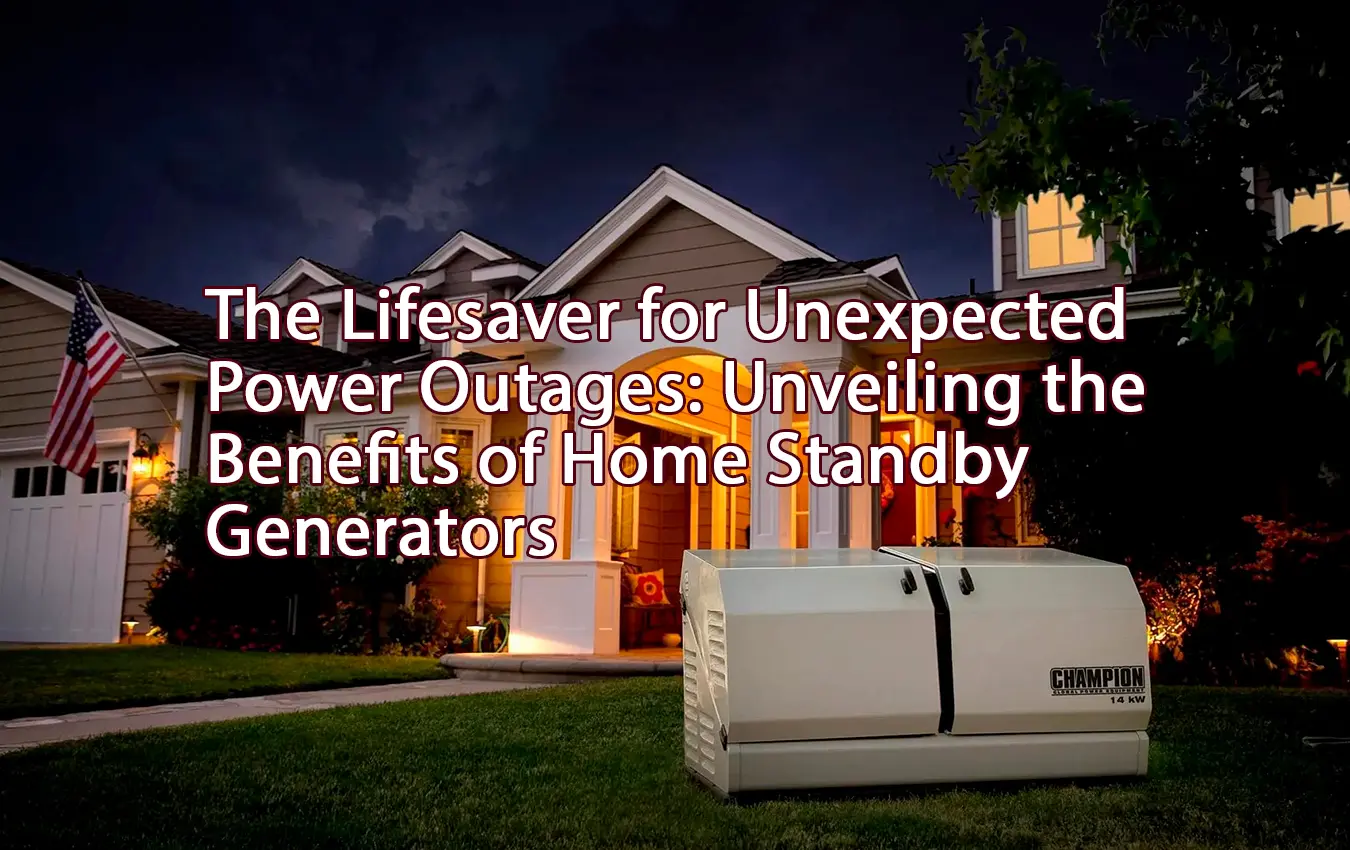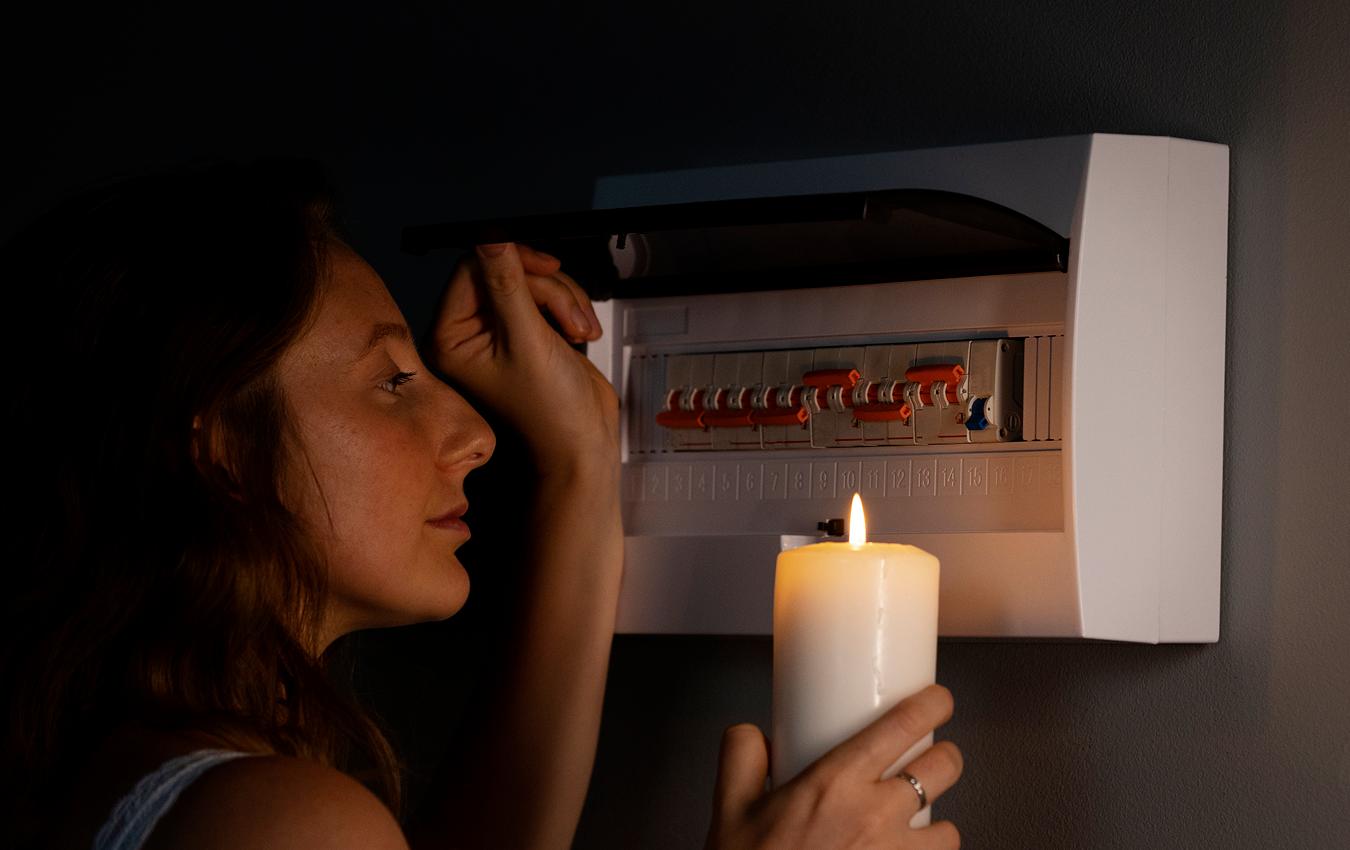Home standby generators serve as an automatic backup power source during power outages. Unlike portable generators, which require manual operation and connection to appliances, these generators are permanently installed and wired into your home’s electrical system. They can detect power outages and activate within seconds.
A home standby generator can maintain the functionality of essential household appliances and devices, from refrigerators and lighting systems to heating, cooling, and security systems. It’s particularly crucial for powering medical equipment. Also, it safeguards your home against potential damage from power surges or spikes when power is restored. With a home standby generator, you enjoy peace of mind and security and are prepared for unexpected power outages. Keep reading to learn more about these devices!
How Home Standby Generator Works
A home standby generator has two primary parts: the generator unit and an automatic transfer switch. Installed outside your home on a concrete pad, the generator unit creates electricity. It can operate on various fuel types, including natural gas, propane, diesel, or gasoline.
The automatic transfer switch, typically installed near your home’s electrical panel, monitors your utility grid’s power supply. It automatically switches to generator power during an outage. This switch can also be set to power specific circuits or appliances based on your unique power requirements and preferences.
The power that home standby generators can provide is gauged in watts or kilowatts, denoting its output capacity. Depending on the model, the output capacity can range from as low as 5 kW to more than 50 kW.
Benefits of Home Standby Generator
A standby generator for the home offers numerous advantages that enhance your safety and convenience during power outages. Here are some key benefits:
Uninterrupted Power Supply: Home standby generators detect power outages and activate within seconds, ensuring a continuous power supply for essential appliances and devices. This means no worries about spoiled food, lack of lighting or heating, missed work or school deadlines, or communication disruptions.
Protection Against Power Surges: These generators also shield your home from potential damage caused by power surges and spikes when the power is restored. Sudden voltage increases can damage sensitive electronics, including computers, TVs, microwaves, washing machines, and dryers. A home standby generator regulates voltage, preventing harmful fluctuations from reaching your home.
Peace of Mind and Security: Knowing you’re prepared for unexpected power outages brings peace of mind. With a home standby generator, there’s no fear of being stranded during emergencies like storms, fires, floods, earthquakes, or cyberattacks. It eliminates the inconvenience of using candles, flashlights, batteries, or extension cords. It reduces the risk of running out of fuel or suffering carbon monoxide poisoning from portable generators. In short, it ensures the comfort and convenience of uninterrupted electricity.
Never let a power outage interrupt your life again! With Premier Electrical Service’s Generator Installation Services, you can enjoy continuous power supply even during severe outages. In Florida, where power outages are frequent and can last for days, having a reliable backup power system is not just a luxury but a necessity.
Ready to equip your home with reliable backup power? Call to learn more by phone 954-900-1696
Factors to Consider When Choosing a Home Standby Generator
To choose astandby generator for your home, keep in mind these points:
Power Needs and Budget: Determine your home’s power requirements during an outage. Calculate the wattage of all appliances and devices you wish to power, adding a safety margin. Consider the frequency, duration, and severity of outages in your area. These factors help define the generator’s required output capacity, directly impacting its price — the higher the capacity, the higher the cost. For example, suppose you want to run your refrigerator, lights, heating and cooling system, security system, and computer. In that case, you might need a generator with an output capacity of 10 kW or more.
Size and Fuel Type: Next, consider the generator unit’s size and fuel type. The unit’s size affects the space it will occupy outside your home. Ensure ample room on a concrete pad and that the unit complies with local noise, emissions, and safety regulations.
The fuel type determines how the home standby generator is powered and maintained. Choose a fuel type that is accessible and affordable in your area and aligns with your lifestyle. For instance, natural gas generators are convenient and eco-friendly but need a gas line connection. Propane generators are versatile but require a storage tank and regular refills. Diesel generators are durable and efficient but noisy and emit more pollutants. Gasoline generators are inexpensive and readily available but have a short lifespan and need frequent refueling.
Brand Reputation and Warranty: Consider the generator’s brand reputation and warranty. Opt for a reputable manufacturer known for quality and performance. Examine the warranty terms to ensure they cover parts, labor, and service for a reasonable period. Check customer reviews and ratings to understand others’ experiences with the product. Our recommendation: Generac, Briggs & Stratton, Champion, Westinghouse, and Kohler. Most of their products come with a 5-year warranty.
Standby Generator Installation and Maintenance
Installing and maintaining a home standby generator is not a do-it-yourself task — it requires professional service from a licensed electrician or dealer. Here are the steps involved in this process:
Engaging a Licensed Professional: Begin by hiring a licensed electrician or dealer, specifically trained and authorized to install and service your chosen generator model. Discuss with them the ideal location, size, fuel type, output capacity, and transfer switch configuration for your home standby generator. Securing the necessary permits and inspections from local authorities is essential before installation.
Ventilation and Location Considerations: Ensure the generator unit is situated in a well-ventilated area, away from flammable materials, combustible gases, heat sources, or sparks. The unit should be easily accessible for maintenance and service.
Routine Inspection and Service: Regular inspection and servicing are crucial to maintaining the generator unit’s optimal performance and safety. Follow the manufacturer’s guidelines to check the oil level, air filter, spark plugs, battery, fuel lines, belts, hoses, and connections. To keep it in good condition, run your generator unit for about 15 minutes at least once a month.
Conclusion
A home standby generator is an essential device that automatically kicks in, providing your home with backup power during an outage. This invaluable system guarantees an uninterrupted power supply and safeguards home appliances against damaging power surges and spikes. And, of course, it provides you and your family with peace of mind, which is priceless.
To choose a home standby generator, you should consider your power needs, the generator’s size and fuel type, and brand reputation and warranty. Also, it’s crucial to remember that you shouldn’t try installing a home standby generator yourself. Failing to install the generator properly will result in backfeeding, fires, and other safety issues.
Yes, choosing, installing, and maintaining a generator is a challenging task. But don’t worry — we can take care of it all! Our team of licensed electricians will conduct a free inspection of your current electrical system, choose the optimal generator, handle all wiring and connections, including plugging the generator into the transfer switch and wiring it to your service panel. Plus, we assess and estimate your property for free. Call to learn more: 954-900-1696
Check out the latest news:
- Commercial Energy Audit: Spotting the Sources of Energy Waste
- Protect Your Fort Lauderdale Home with Whole-House Surge Protection
- Power Outages in Fort Lauderdale: How to Protect Your Home
- Preparing for a Home Rewiring Project: A Checklist for Homeowners
- 5 Critical Signs You Need a Whole-House Surge Protector





